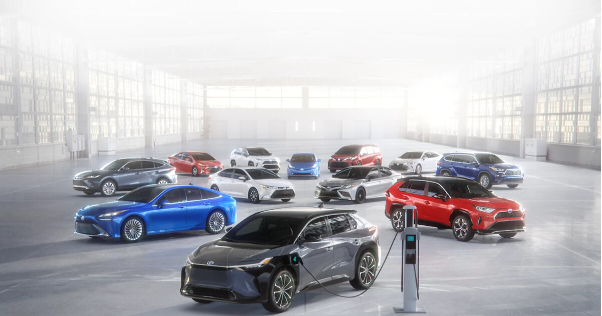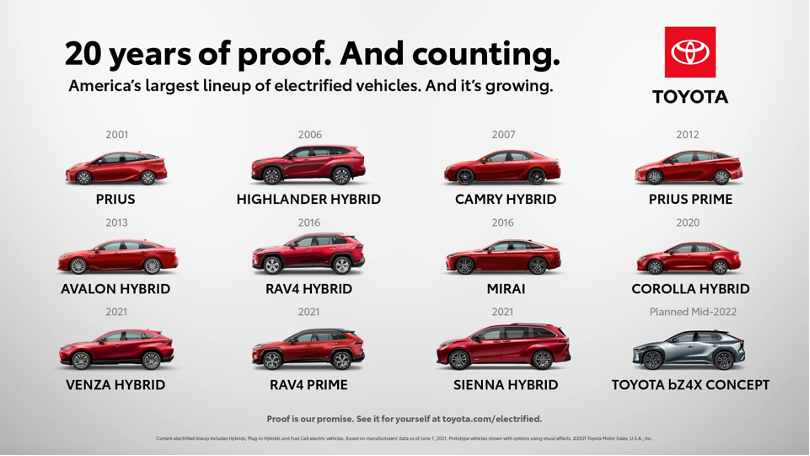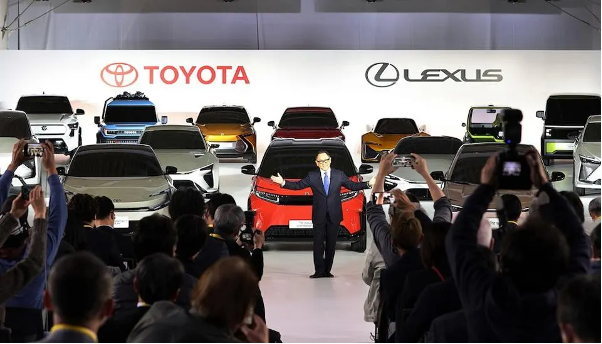Toyota Drives Toward a Hybrid-Powered Horizon
| By Han Tran |
Japanese Auto Giant Bets on Hybrids Over EVs
Toyota has maintained its leading position as a top-selling automaker with a reported revenue of $307 billion, marking more than a 15% increase from 2022. Despite its dominant market presence, the company has faced criticism for its delayed adoption of electric vehicles, opting instead to focus on hybrid models such as the Lexus, Camry, and Prius. As the global trend shifts towards eco-friendly transportation, electric cars are gaining prominence in the market due to their environmentally friendly advantages, boasting a significant reduction of up to 50% of carbon emissions compared to traditional gasoline-powered vehicles. Despite accelerating industry shifts towards manufacturing EVs, Toyota has only one all-electric vehicle model, the Toyota bZ4X, launched in mid-2022.

Reluctance and Reasons Behind Toyota’s Rationale
At a presentation in early 2024, Toyota Chairman Akio Toyoda outlined the company’s stance, stating that EV adoption is not a high priority. Toyoda posited that battery-operated vehicles do not have a significant appeal to customers, making marketing and customer adaptation a challenge, particularly regarding the use of batteries and charging stations. Toyoda believes future vehicle global market trends will result in fully electric cars capturing a maximum of 30% of the mobility market, while hybrid and legacy gas-powered cars will account for the remaining 70%. Toyoda’s assessment provides greater insight into Toyota’s present path, explains why the company has appeared hesitant to fully shift investments into EV innovations, and questions the environmental benefits of EVs.
While it’s true that the initial manufacturing process of electric vehicles produces significant pollution due to heavy mining for battery materials, it’s essential to acknowledge that EVs ultimately emit significantly less pollution over their lifetimes. In fact, studies show EVs can reduce global pollutant emissions by more than 40%. It’s surprising, therefore, that Toyota doesn’t seem to view battery electric vehicles as a viable solution for climate change and greenhouse emissions, given their potential long-term benefits.
Strong Revenues Seemingly Justify Toyota’s Hybrid Strategy
Despite the controversies surrounding Toyota’s decisions, the company’s revenue with hybrid models surged strongly, approximately doubling its profits for the 2023-2024 period and surpassing $34 billion. Out of 11.2 million total vehicles sold, there were 3.4 million hybrid vehicles. On the other hand, their fully electric cars sale makes up less than 1% of total sales. With its strong performance in the competitive hybrid vehicles market, Toyota has proved that its decisions were financially sound to ensure its profits under strictly business lenses and continue to slowly adopt EVs while focusing on hybrids as the company’s environmentally friendly vehicles.

Cautious Conclusions
The rise of EVs has undoubtedly impacted the global automobile market. From hybrid vehicles to fully electric cars, innovation has driven efforts to mitigate climate change and reduce greenhouse gas emissions. While companies compete to develop environmentally friendly options, Toyota has faced scrutiny for its cautious approach. Despite this, their strategy appears to have paid off financially and environmentally. The chairman’s assertion that fully electric vehicles aren’t a long-term solution suggests that the company is working on further plans, developments, and innovations to tackle environmental concerns.
Photo Credit: Toyota



